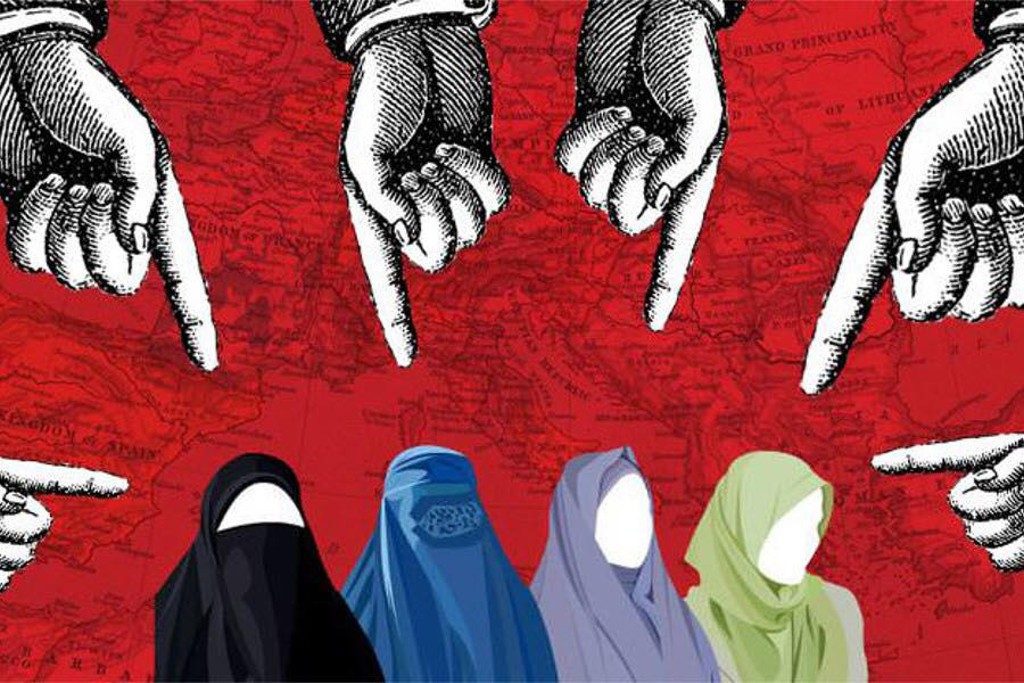
It is possible to date the practice of issuing fatwas to the beginning of Islam. The word “fatwa” comes from the Arabic verb “fata,” which means “to expound” or “to clarify.” The Prophet Muhammad acted as the foremost authority during the early Islamic era, advising and responding to inquiries from his companions and the Muslim community. After his passing, Islamic scholars assumed control of issuing fatwas. Islamic jurisprudence has traditionally included fatwas or religious judgments given by certified Islamic scholars, and they significantly impact Muslims’ lives worldwide.
To help Muslims live their daily lives in conformity with Islamic principles, these rulings offer direction on faith, ethics, social conduct, and personal concerns. Marriage, divorce, inheritance, finances, dietary restrictions, and religious practices are just a few of the subject matter covered in fatwas. The importance of fatwas is seen in their function as a source of moral authority and direction for Muslims. They offer interpretations of Islamic texts and tenets as well as guidance on how Muslims should conduct themselves in accordance with their religious beliefs.
Fatwas can profoundly affect people, families, and communities as they frequently determine cultural norms, personal decisions, and official policies. In many nations with most Muslims, fatwas also significantly influence how religion and state interact. Fatwas are acknowledged and incorporated into the law in some jurisdictions, which impacts how laws are made and how the government is run. Fatwas are issued, and religious authority is upheld in each nation through Islamic legal bodies and institutions, such as Dar al-Ifta in Egypt or the Council of Senior Scholars in Saudi Arabia. However, discussions and conflicts have arisen concerning the issue and application of fatwas, notably concerning their validity and constitutionality.
Historical Development of Fatwa
Usul al-Fiqh, the primary source of Islamic law, is the basis for creating Fatwas. The Quran, the Hadith (sayings and deeds of the Prophet Muhammad), the Ijma (scholarly agreement), and the Qiyas (analogical reasoning) are some of these sources. As the inspired word of God, the Quran has the ultimate authority, and discussions about fatwas frequently begin with verses from it. The traditions and customs of the Prophet Muhammad that have been documented in the Hadith offer additional instruction. Fatwas were often issued throughout the early caliphate to deal with governance and public interest issues.
As the Muslim population grew, academics started issuing fatwas on a broader range of subjects, such as private problems, morality, and religious practices. The breadth and depth of fatwas have grown to encompass many facets of life, reflecting the changing demands and difficulties Muslim societies face. Scholarly consensus, known as Ijma, refers to the agreement reached by most qualified scholars on a given issue. While Ijma is considered a key source of religious authority, it is only sometimes easily obtainable due to the range of viewpoints among academics. Reasoning, or Ijtihad, is another critical component in the creation of fatwas. It entails using legal theories and procedures to reach decisions regarding brand-new or challenging problems. Scholars apply numerous ways of reasoning, such as analogical deduction (Qiyas), public interest considerations (Maslaha), and juristic preference (Istihsan).
Implementation Mechanism of Fatwa

Traditionally, qualified experts have delivered sermons, lectures, and classes at mosques and other religious organizations to distribute fatwas. Mosques are significant communal hubs where people can go for advice on spiritual concerns and speak with renowned scholars in person. For instance, Friday sermons allow academics to address congregations and issue fatwas concerning current events or regional issues. Institutions of religion also provide avenues for people to approach scholars directly for personal fatwas.
When approving and carrying out fatwas, Islamic legal councils and institutions established at the regional, national, or worldwide levels play a significant role. These organizations bring together academics from different schools of thought to discuss complex theological and legal issues. They want to offer authoritative fatwa judgments that are consistent with the views of all experts. The methods by which fatwas are put into practice—which include conventional channels of communication, media sway, and the function of Islamic legal councils and institutions—reflect the shifting dynamics of the propagation of religious law in modern society. These mechanisms affect how easily accessible, widely accepted, and effective fatwas are, affecting people and communities.
While Islamic legal bodies and organizations are very important in approving and carrying out fatwas, individual scholars still have the right to do so on their own, depending on their knowledge and comprehension of Islamic law. A fatwa is not necessarily universally enforceable just because a council or other institution has approved it because people are still free to consult with other scholars for opposing views.
Legal Framework governing Fatwa

Constitutional clauses that defend religious freedom and freedom of expression in many nations regulate the legality and control of Fatwa. The freedom of people to practice and express their religious beliefs, including the right to ask for and receive religious advice, is frequently guaranteed by constitutions. These clauses are meant to safeguard religious communities’ autonomy as well as their right to issue and adhere to fatwa within the confines of the law. The parameters for the issue of fatwa are also established by constitutional protections for freedom of religion and expression, guaranteeing that they do not infringe upon peoples’ rights and liberties or violate other legal precepts. The legal system in many Islamic countries combines civil and religious laws.
Family law, criminal law, and commercial law are only a few of the areas of public and private life that are governed by civil laws. Islamic-based religious laws that are based on the same principles as civil laws frequently deal with issues pertaining to social standing, familial relationships, and religious practices. The recognition and application of fatwa in various jurisdictions may be impacted by the relationship between civil and religious law. The acceptance and application of fatwa can differ in secular legal systems. Fatwas are sometimes considered solely religious instruction or advice with no legal standing.
However, there are cases where fatwas have been acknowledged and included in the legal system, particularly in areas with religious overlaps, like family law. Regarding constitutional principles, statutory laws, and public policy considerations, fatwas are frequently recognized and upheld in secular legal systems. Fatwa that aligns with these legal frameworks may be considered persuasive or advisory in nature, influencing the decisions of individuals or acting as a non-binding sources of moral guidance.
Debates surrounding the legality
Arguments in favor of the Fatwa
According to supporters, qualified Islamic scholars who are qualified to interpret Islamic law are the ones who issue Fatwas. As a result, Muslims who seek Islamic guidance should regard their decisions as binding. Supporters assert that because fatwas offer direction on issues pertaining to faith, ethics, and communal practices, accepting them is morally and socially obligatory. They contend that abiding by fatwas promotes a sense of civic responsibility and increases religious cohesiveness.
Arguments against the Fatwa
Voluntary Compliance
Detractors contend that fatwas are merely religious opinions or counsel and are not enforceable in court. They stress that when deciding whether to follow a certain fatwa, people are allowed to seek out alternate viewpoints or use their own discretion.
Individual Autonomy
Opponents contend that everyone has the right to express their religious freedom and interpret Islamic teachings autonomously. They contend that enforcing binding fatwas violates people’s autonomy and may result in excessive control and restrictions on their freedom of choice and rights.
Depending on the relevant states’ legal systems, constitutional requirements, and societal dynamics, the outcomes of legal matters involving fatwas vary. These examples bring to light the difficulties and complications surrounding the legal standing and application of fatwas. Some situations can entail disagreements about the legitimacy of the issuing authority, problems between fatwas and secular legislation, or issues relating to human rights. Courts may adopt a variety of strategies in these matters, such as recognizing fatwas as legally binding documents, considering them to be non-binding religious statements, or determining whether they are consistent with fundamental liberties and ideals protected by the Constitution.
As judicial systems in many nations develop their grasp of the legal status and implications of fatwas, it is thanks in part to the precedents created in these cases. Numerous contextual elements, including cultural, socioeconomic, and geopolitical issues, might have an impact on how fatwas are applied. These elements may alter how fatwas are regarded, applied, and perceived in various locales and social groups.
Constitutional Considerations and Human Rights

It is important to consider fatwas in light of the individual freedoms and rights that are safeguarded by constitutional frameworks. When assessing the effects and application of fatwas, fundamental human rights, including equality, freedom of expression, and freedom of religion, should be taken into account. Making sure that fatwas do not violate people’s rights and liberties is essential. Individual autonomy should be respected while issuing fatwas, giving people the ability to use their own judgment and interpretation of religious teachings. Fatwas shouldn’t be employed as instruments to stifle dissent, limit individual freedom, or infringe on human rights.
Fatwas and constitutional laws may conflict, especially where religious doctrine deviates from accepted legal principles. Constitutional guarantees of freedom of speech, equality, non-discrimination, and the rule of law may collide with fatwas that support actions or beliefs that contravene these rights. In these situations, courts and legal systems must decide how to balance religious convictions and constitutional ideals. The difficulty of reconciling religious autonomy and the defense of individual rights exists in pluralistic communities, which are characterized by a variety of religious, cultural, and philosophical perspectives. In such communities, it is essential to establish legal systems that maintain religious freedom, permit the expression of various religious beliefs, protect individual rights, and preserve social cohesiveness.
Striking this equilibrium can entail: ensuring the precedence of constitutional provisions: The legitimacy and application of fatwas should be assessed using the constitution’s protections for individual rights and freedoms as their basis. To ensure that fatwas are in accordance with constitutional principles and do not violate individual rights, legal systems should specify precise rules for assessing their legitimacy and impact. Promoting open and inclusive discussion between religious leaders, academics, legal professionals, and civil society can help the establishment of shared understandings. Strengthening legal protections: Legal systems should provide procedures for judicial review, appeals, and redress to protect individual rights in order to address contradictions between fatwas and constitutional clauses.
Conclusion
The socio-legal investigation of the legitimacy and constitutionality of fatwas yields several important conclusions. With a deep historical foundation in Islamic jurisprudence and a reliance on the main texts of Islamic law, fatwas have a long history. The means by which fatwas are put into practice have developed, taking into account both conventional channels of communication as well as the power of the media and the function of Islamic organizations and legal councils. Different jurisdictions have different legal frameworks governing fatwas, with constitutional protections for freedom of religion and expression playing a big part. The interaction of civil and religious laws in Islamic nations shapes the recognition and execution of fatwas.
However, secular legal systems may take diverse ways to incorporate fatwas into the legal system. The arguments for and against the enforceability of fatwas are based on religious authority, moral obligations, and other considerations. Opposing viewpoints emphasize voluntary compliance and individual autonomy. Legal systems should place a high priority on defending people’s freedoms and rights, making sure that fatwas do not violate them. To protect individual rights and offer recourse, mechanisms for legal review, appeals, and remedy should be developed. To empower people and encourage informed decision-making, education, and knowledge regarding the nature and scope of fatwas should be fostered. To foster shared understandings and advance social cohesion, dialogue should be promoted between religious leaders, legal authorities, and civil society.
References
- Shahid K, “A Shi’ite Encyclopedia Version 2” ((PDF) A Shi’ite Encyclopedia Version 2 | Kamran Shahid – Academia.edu) <https://www.academia.edu/35153506/A_Shiite_Encyclopedia_Version_2> Accessed 13 July 2023.
- “Ramadan in Saudi Arabia”. The Economist. 11 June 2016. Accessed 13 July 2023.
- Britannica, The Editors of Encyclopaedia. “uṣūl al-fiqh”. Encyclopedia Britannica, https://www.britannica.com/topic/usul-al-fiqh. Accessed 13 July 2023.
- Ali S and others, “Role of Mosque Communities in Supporting Muslims with Mental Illness: Results of CBPR-Oriented Focus Groups in the Bay Area, California” (PubMed Central (PMC), November 2, 2022) <https://www.ncbi.nlm.nih.gov/pmc/articles/PMC9628571/> Accessed 13 July 2023.